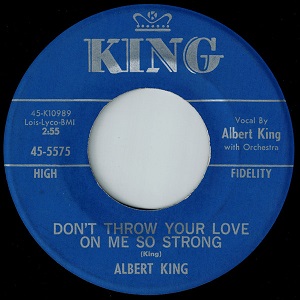 W
W"Don't Throw Your Love on Me So Strong" is a blues song written and recorded by Albert King. The song was first released on Bobbin Records, but it became King's first hit record after its release on King Records in 1961.
 W
W"Fever" is a song written by Eddie Cooley and Otis Blackwell, who used the pseudonym John Davenport. It was originally recorded by American R&B singer Little Willie John for his debut album, Fever (1956), and released as a single in April of the same year. The song topped the Billboard R&B Best Sellers in the US and peaked at number 24 on the Billboard pop chart. It was received positively by music critics and included on several lists of the best songs during the time it was released.
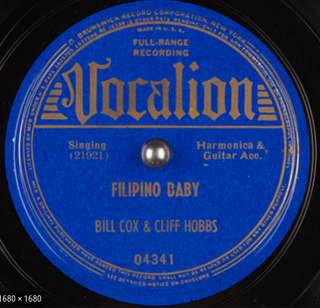 W
W"Filipino Baby" is a country music song written by Bill Cox and Clarke Van Ness. First recorded in 1937, it was based on an earlier song from 1899. The song became a hit in 1946 for three different country artists: Cowboy Copas, T. Texas Tyler, and Ernest Tubb.
 W
W"Funky Drummer" is a single released by James Brown in 1970. Its drum break, improvised by Clyde Stubblefield, is one of the most frequently sampled music recordings.
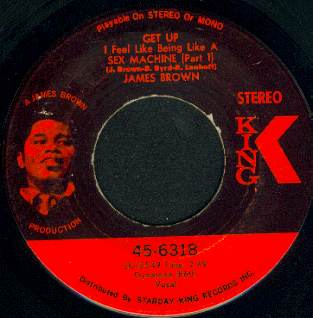 W
W"Get Up Sex Machine" is a song recorded by James Brown with Bobby Byrd on backing vocals. Released as a two-part single in 1970, it was a no. 2 R&B hit and reached no. 15 on the Billboard Hot 100.
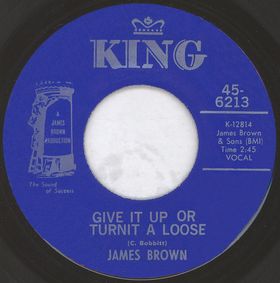 W
W"Give It Up or Turnit a Loose" is a funk song recorded by James Brown. Released as a single in 1969, the song was a #1 R&B hit and also made the top 20 pop singles chart. "Give It Up or Turnit a Loose" appeared as an instrumental on the Ain't It Funky (1970) album, removing Brown's vocals and adding guitar overdubs, while the vocal version was released onto Soul Classics (1972).
 W
W"The Grunt" is a funk instrumental recorded in 1970 by James Brown's band The J.B.'s. It was released as a two-part single on King. It was one of only two instrumental singles recorded by the original J.B.'s lineup with Bootsy and Catfish Collins. Large parts of "The Grunt"'s melody and arrangement are borrowed, uncredited, from The Isley Brothers' song "Keep on Doin'", which was released earlier in the same year.
 W
W"I Don't Mind" is a rhythm and blues song written by James Brown and performed by Brown and the Famous Flames. Released as a single in 1961, it reached number four in the R&B Billboard charts and number 47 in the Pop Billboard charts. Brown and the Flames also performed it on their 1963 album Live at the Apollo
 W
W"I Got the Feelin'" is a funk song by James Brown. Released as a single in 1968, it reached No. 1 on the R&B chart and #6 on the pop chart. It also appeared on a 1968 album of the same name.
 W
W"I Got You " is a song by American singer James Brown. First recorded for the album Out of Sight and then released in an alternate take as a single in 1965, it was his highest-charting song and is arguably his best-known recording.
 W
W"I Know You Got Soul" is a song recorded by Bobby Byrd with James Brown's band The J.B.'s. The recording was produced by Brown and released as a single in 1971. It reached #30 on the Billboard R&B chart. It was prominently sampled on the 1987 song of the same name by Eric B. & Rakim. The "you got it" is referenced in Static and in the song's remix.
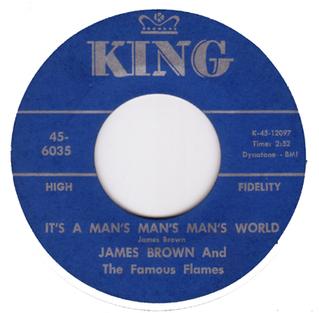 W
W"It's a Man's Man's Man's World" is a song written by James Brown and Betty Jean Newsome. Brown recorded it on February 16, 1966, in a New York City studio and released it as a single later that year. It reached No. 1 on the Billboard R&B chart and No. 8 on the Billboard Hot 100. Its title is a word play on the 1963 comedy film It's a Mad, Mad, Mad, Mad World.
 W
W"Kansas City" is a rhythm and blues song written by Jerry Leiber and Mike Stoller in 1952. First recorded by Little Willie Littlefield the same year, the song later became a chart-topping hit when it was recorded by Wilbert Harrison in 1959. "Kansas City" is one of Leiber and Stoller's "most recorded tunes, with more than three hundred versions", with several appearing in the R&B and pop record charts.
"Leave My Kitten Alone" is a 1959 R&B hit, written by Little Willie John, Titus Turner and James McDougal, first recorded by Little Willie John. The song follows a 24-bar blues format.
 W
W"Mother Popcorn " is a song recorded by James Brown and released as a two-part single in 1969. A #1 R&B and #11 Pop hit, it was the highest-charting of a series of recordings inspired by the popular dance the Popcorn which Brown made that year, including "The Popcorn", "Lowdown Popcorn", and "Let a Man Come In and Do the Popcorn".
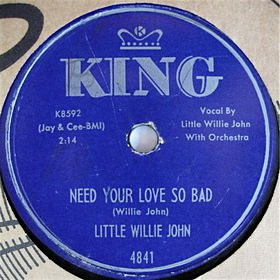 W
W"Need Your Love So Bad", sometimes known as "I Need Your Love So Bad", is a song first recorded by Little Willie John in 1955. Called a "unique amalgam of gospel, blues and rhythm & blues", it was John's second single as well as his second record to reach the US charts.
 W
W"Papa's Got a Brand New Bag" is a song written and recorded by James Brown. Released as a two-part single in 1965, it was Brown's first song to reach the Billboard Hot 100 Top Ten, peaking at number eight, and was a number-one R&B hit, topping the charts for eight weeks. It won Brown his first Grammy Award, for Best Rhythm & Blues Recording.
 W
W"Say It Loud – I'm Black and I'm Proud" is a funk song performed by James Brown, and written with his bandleader Alfred "Pee Wee" Ellis in 1968. It was released as a two-part single which held the number-one spot on the R&B singles chart for six weeks, and peaked at number ten on the Billboard Hot 100. Both parts of the single were later included on James Brown's 1968 album A Soulful Christmas and on his 1969 album sharing the title of the song. The song became an unofficial anthem of the Black Power movement.
 W
W"She's the One" is a rhythm and blues song written by Hank Ballard and first recorded by his group The Midnighters. Originally issued on Federal Records as the B-side of their #1 R&B hit "Annie Had a Baby", it received an A-side release later the same year.
 W
W"Super Bad", originally titled Call Me Super Bad, is a 1970 song by James Brown. Originally released as a three-part single, it went to #1 on the R&B chart and number 13 on the Billboard Hot 100. The song's lyrics include the refrain "I've got soul and I'm super bad." The positive use of the word "bad" is an example of linguistic reappropriation, which Brown had done before in "Say It Loud - I'm Black and I'm Proud".
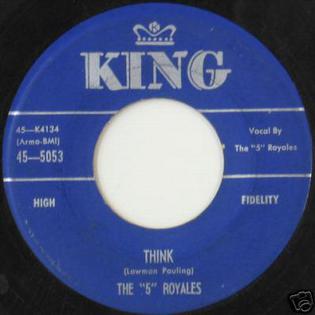 W
W"Think" is a rhythm and blues song written by Lowman Pauling and originally recorded by his group The "5" Royales. Released as a single on King Records in 1957, it was a national hit and reached number nine on the U.S. R&B chart.
 W
W"Train Kept A-Rollin'" is a song first recorded by American jazz and rhythm and blues musician Tiny Bradshaw in 1951. Originally performed in the style of a jump blues, Bradshaw borrowed lyrics from an earlier song and set them to an upbeat shuffle arrangement that inspired other musicians to perform and record it. Johnny Burnette and the Rock and Roll Trio made an important contribution in 1956 – they reworked it as a guitar riff-driven song, which features an early use of intentionally distorted guitar in rock music.